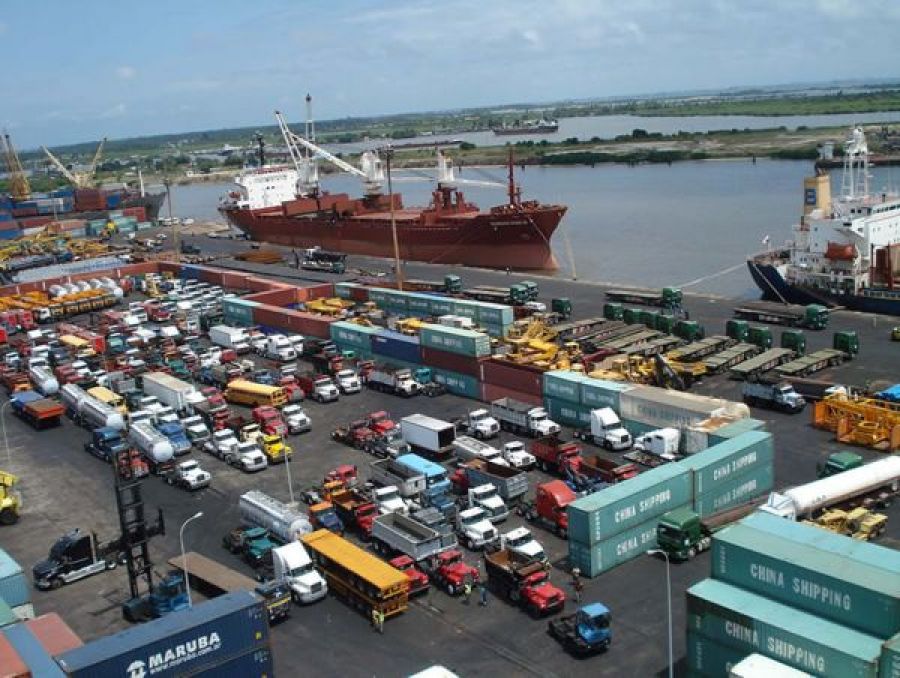
The Maritime Anti-corruption Network (MACN) and the Convention on Business Integrity (CBI) said they recorded a total of 455 incidents of demands for large cash unreceipted payments at Nigerian seaports from 2019 to date.
The Chief Executive Officer of CBI, Olasoji Apampa, disclosed this yesterday at a press conference to announce plans to intensify the war against corruption at the port in 2022.
Giving a breakdown of the corruption incidents, Apampa said 266 incidents of demands for large cash unreceipted payments were recorded in 2019, 128 in 2020 and 51 incidents so far in 2021. He, however, did not disclose the ports where the incidents were recorded or the agencies and persons involved.
Speaking about the groups’ plans for 2022, he said, “What we intend to do is the continuation of what has been achieved on the side of vessel clearance. In 2019, there were 266 incidents of demands for large cash unreceipted payments. This dropped drastically to 128 in 2020 and has further dropped to only 51 incidents in 2021. So, it is our hope in 2022, that we can reduce this and start to take a bold step in cargo clearance by trying to reduce the incidence of inefficiency and corruption as well.
“Also, in the first quarter of 2022, we would be training all the agencies officials who board vessels and the standing task team which comprises the Department of State Services (DSS), Nigerian Shippers’ Council (NSC) and Nigerian Ports Authority (NPA) who are carrying out operations and ensuring proper implementation of the port process manual.
“We want to also reexamine the digitalization of the port in the first quarter especially the quest for the single window in the context of the African free trade agreement. As regards this, we want to have a stakeholder forum on the 27th of January 2022.
“In the second quarter, we want to bring from the sub-region, all of the agencies that board vessels, and try to get some training courses for them so they would understand international best practice on how to relate with ships clearing, and to also relate with the consignee, freight forwarders in the clearing of cargoes.”
Apampa said the groups were partnering with the government to get agencies under it “to do things the right way”.
“Luckily, we already have a government in the maritime sector that has representatives who have been looking at the right way of doing things. Hence, the purpose of this briefing through the integrity alliance is to create awareness of our engagement with the government to move the maritime sector forward,” he said.
Also speaking, Associate Director, Global Operation and Industry Engagement, MACN, Vivek Menon, said he was optimistic that the alliance would enhance more positive changes in the industry by drastically reducing corruption to the barest minimum.
He said, “Eleven years ago with the advent of the UK Bribery Act, shipping companies realized their system behind their processes needed to change. So a handful of companies came together to look into doing ethical business going forward. This formed the MACN.
“It is a network and not a service-based organization. We capture more than 50 percent of global tonnage and move more than 40 percent of cargo. In terms of container traffic, we have moved more than 75 percent of tonnage.
“We want to start with Nigeria because it is one of the most difficult working environments. Initially, we were very optimistic because we consciously believe that there was a change happening. But now, we want to amplify the change by collaborating with the government to advance this fight against corruption in Nigerian ports. And this is going to be beneficial for the country, region and also the continent,” Vivek noted.
MACN is a global maritime business network working towards the vision of a maritime industry free of corruption, which enables fair trade to the benefit of society while CBI is a Nigerian non-profit organisation that has been at the forefront of promoting ethical business practices, transparency, and accountability, as well as fair competition in the private and public sectors through capacity strengthening and advocacy that promotes behaviour change and institutionalise governance and integrity systems at all levels.